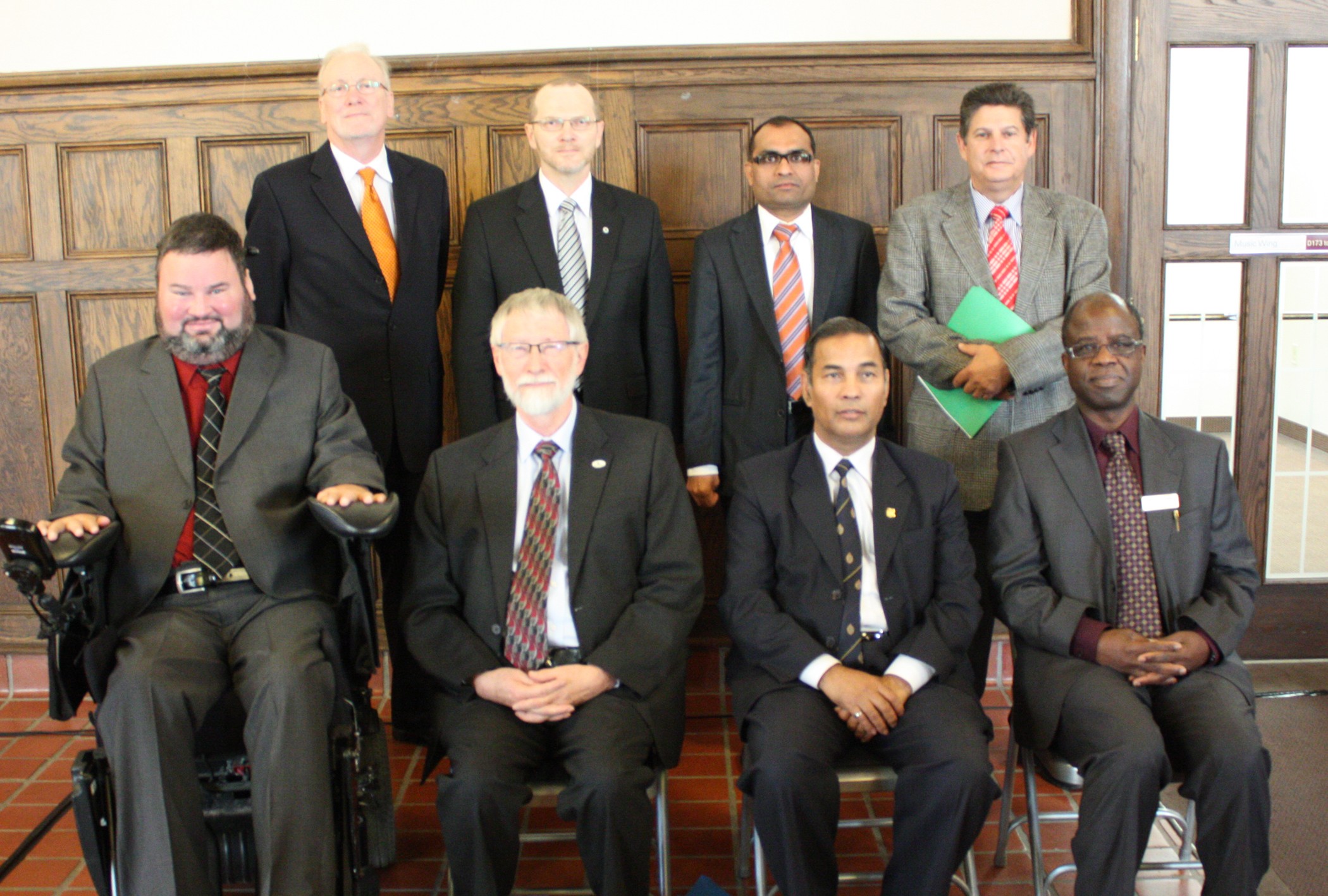Dr. Martin Entz to explore Sabbath and its applications to natural systems agriculture
Canadian Mennonite University is pleased to announce it will host Dr. Martin Entz as its 2016 Scientist in Residence.
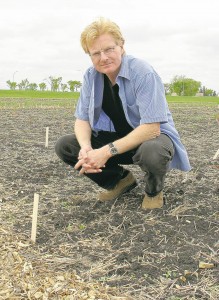
Entz, a professor of Cropping Systems and Natural Systems Agriculture at the University of Manitoba, will be on campus February 1-5 to share his insights, observations, experience, and personal reflections in a number of speaking events open to the public.
CMU is looking forward to hosting Entz, says Dr. Tim Rogalsky, Associate Professor of Mathematics and Chair of the Science and Faith Advisory Committee.
“Martin is a renowned researcher with more than 25 years of experience and work published in more than 100 peer-reviewed scientific papers,” Rogalsky says. “His work is exciting because it explores questions of food security that are important in our world today.”
Entz’s confirmed speaking engagements are as follows:
- A student forum titled, “Journey into Natural Systems Agriculture,” on Monday, February 1 from 11:30 AM to 12:00 PM in the CMU Chapel (600 Shaftesbury Blvd.). Entz will share about his journey in the field of Natural Systems Agriculture, which explores cropping systems found in nature and develops systems that mimic them.
- A chapel titled “Land as Gift: A Game Changer,” on Tuesday, February 2 from 11:30 AM to 12:00 PM in the CMU Chapel. In this presentation, Entz will explore how viewing the Earth as a gift from the creator is a helpful guide when addressing the ecological crises humans face today.
- A lecture on Wednesday, February 3 at 7:00 PM in Marpeck Commons (2299 Grant Ave). In the lecture, titled “The Science of Sabbath: Meeting the Expectations of the Land,” Entz will reflect on more than 25 years of natural systems agriculture research and highlight biblical themes of stewardship to suggest a shift in emphasis from smart resource management to wonder, humility, and inspiration.
While his week as Scientist in Residence will mark Entz’s first time speaking at CMU, he is no stranger to the university.
He is currently on sabbatical and using office space on campus as he researches the concept of Sabbath and how it can be applied to designing food production systems.
Interacting with CMU faculty is helping him think theologically and philosophically about the topic, as well as leading him to ask richer questions in his research.
“The concept of Sabbath is not part of our narrative,” Entz says of the research he and his University of Manitoba colleagues do. “It could be and it should be. If I explore the idea of Sabbath at CMU, I can bring some of that wisdom back to my colleagues in the science faculty I’m in.”
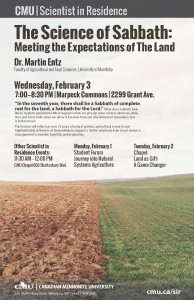 Entz says he is looking forward to his week as Scientist in Residence because it will allow him to interact with CMU students and faculty in a more formal way.
Entz says he is looking forward to his week as Scientist in Residence because it will allow him to interact with CMU students and faculty in a more formal way.
“It’s an honour to be selected for something like this,” he says, adding the events will “allow me to highlight some of the linkages between faith and science.”
Entz says that his research has revealed repeatedly that humans live in a world of abundance rather than scarcity. The idea of a sustainable food production system that includes periods of rest for the land in order to keep it healthy is entirely possible.
He hopes to share this message during the three events, and is looking forward to exploring these topics in greater depth with the community of people who attend.
“I really do think the difficult challenges we face as a civilization we need to work on together,” Entz says.
Since earning his PhD in crop physiology at the University of Saskatchewan, Entz has carved out a significant career that includes teaching courses in crop ecology and organic agriculture, as well as overseeing an active graduate student program.
A highlight of Entz’s work is collaborating with farmers and learning from their experiences. He participates in ecologically-integrated farming system research and development work in Central America, southern Africa, and northwest China.
Entz and his wife, Jereleen, have two adult children and attend Douglas Mennonite Church in Winnipeg.
All of the Scientist in Residence events are free and open to the public. For more information, visit cmu.ca/sir.

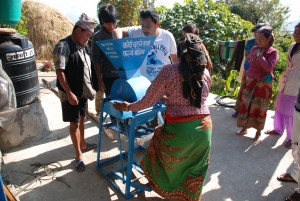 The SAK project builds upon experience gained from a
The SAK project builds upon experience gained from a 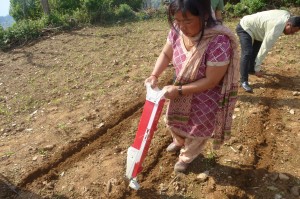 The project will address these challenges by: improving soil fertility, promoting climate change resilient crops, empowering and strengthening the resiliency of local innovators/farmers, using technology to assess farmers’ needs and collect feedback, and seeking ways to scale up the aforementioned technologies for inclusion in SAKs.
The project will address these challenges by: improving soil fertility, promoting climate change resilient crops, empowering and strengthening the resiliency of local innovators/farmers, using technology to assess farmers’ needs and collect feedback, and seeking ways to scale up the aforementioned technologies for inclusion in SAKs.